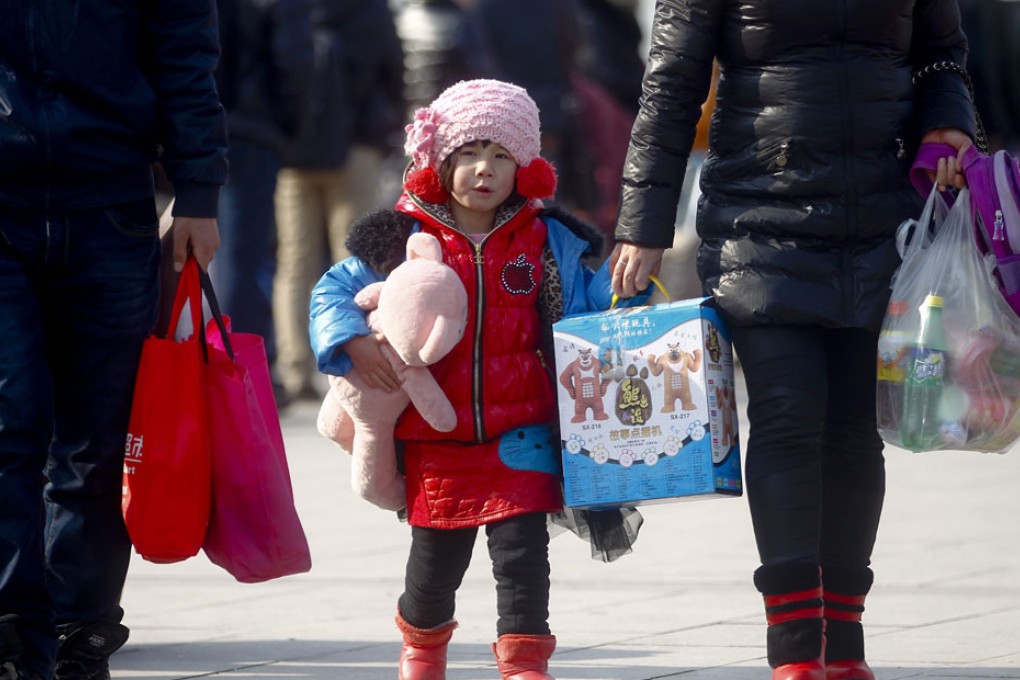Relaxing one-child policy will create near-term baby boom but real benefits will take years to see
Allowing more couples to have a second child will create baby boom in the short term, but greater benefits will take years to materialise

Relaxing the one-child policy will see a small baby boom in the near future, but long-term benefits including alleviating the ageing problem probably might not be seen until the end of the century, demogra phers say.

Such a policy change would not immediately result in an significant improvement of such problems, said Yuan Xin, a demographer at Nankai University in Tianjin . Rather, it would cause gradual changes the structure of the population, the benefit of which can only be observed in the long run.
"This policy change is only a transitional one to allowing all couples to have a second child. But how soon that happens depends on how big the baby boom will be," Yuan said. "Provincial-level authorities will draft individual policies to guide couples plan second children in a reasonable way to avoid big fluctuations."
Yuan projects that the policy change would mean that the aged population - 60 years and above - would drop from 24.1 per cent of the population to 23.8 per cent in 2030, and from 34.1 per cent to 32.8 per cent in 2050. The share in 2100 would drop from 39.6 per cent to 34.3 per cent.
"A drop in the aged population of five percentage points means a lot from many perspectives," Yuan said .
The extra births, projected to be about one million each year, will add new blood to the labour force, which is projected to drop sharply over the next 15 years, and increase the labour force of 15- to 59-year-olds, from 700 million to 726 million in 2050.